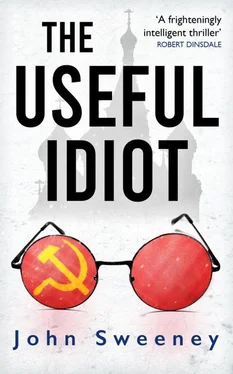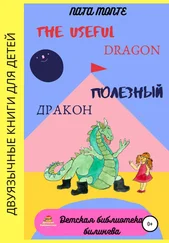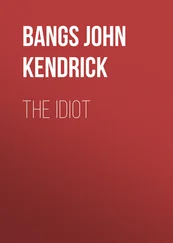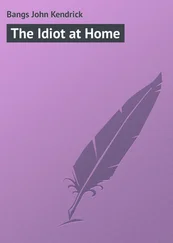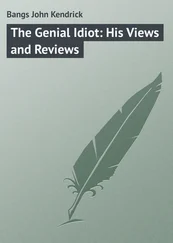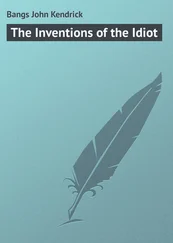John Sweeney - The Useful Idiot
Здесь есть возможность читать онлайн «John Sweeney - The Useful Idiot» весь текст электронной книги совершенно бесплатно (целиком полную версию без сокращений). В некоторых случаях можно слушать аудио, скачать через торрент в формате fb2 и присутствует краткое содержание. Город: London, Год выпуска: 2020, Издательство: Silvertail Books, Жанр: Исторический детектив, Триллер, на английском языке. Описание произведения, (предисловие) а так же отзывы посетителей доступны на портале библиотеки ЛибКат.
- Название:The Useful Idiot
- Автор:
- Издательство:Silvertail Books
- Жанр:
- Год:2020
- Город:London
- ISBN:нет данных
- Рейтинг книги:4 / 5. Голосов: 1
-
Избранное:Добавить в избранное
- Отзывы:
-
Ваша оценка:
- 80
- 1
- 2
- 3
- 4
- 5
The Useful Idiot: краткое содержание, описание и аннотация
Предлагаем к чтению аннотацию, описание, краткое содержание или предисловие (зависит от того, что написал сам автор книги «The Useful Idiot»). Если вы не нашли необходимую информацию о книге — напишите в комментариях, мы постараемся отыскать её.
* * *
The Useful Idiot — читать онлайн бесплатно полную книгу (весь текст) целиком
Ниже представлен текст книги, разбитый по страницам. Система сохранения места последней прочитанной страницы, позволяет с удобством читать онлайн бесплатно книгу «The Useful Idiot», без необходимости каждый раз заново искать на чём Вы остановились. Поставьте закладку, и сможете в любой момент перейти на страницу, на которой закончили чтение.
Интервал:
Закладка:
They walked on in silence. At the next village, a man, skeletally thin, emerged from a wooden hovel and stared at them. The village was but twenty houses and the blackened shell of a burnt down church. No mooing of cattle, no bleating of sheep, no neighing of horses. A girl appeared from behind a second shack, stared at them, then ran away.
Jones walked cautiously up to the man. “How are things here, may we ask?”
“He looks like a foreigner,” the man said, addressing Evgenia. “Is he an idiot, like all the other foreigners who come here?”
“He is a foreigner, from Great Britain, but no,” said Evgenia, “he is not an idiot. Can you tell us how things are here?”
“Where is the Cheka? When foreigners come, the Cheka comes too.”
“We are here on our own,” said Evgenia. “No-one knows we are here. Please, can you tell us how things are here?”
The man bent down to remove something from the top of his boot, taking the opportunity to glance around. No-one could be seen.
“Has anyone died of the hunger?”
He laughed, contemptuously, turned his back on them and started to trudge off.
“I’m sorry,” she cried out, “but we are trying to find out the truth…”
The man carried on, affecting not to hear her.
“We have food.”
He stopped dead.
“It’s not much, some sausage, bread, a few chocolate bars. We can share with you and your family.”
“Food first and then I’ll sing.”
Soon, the man led them to a wooden shack. On the table lay a broken belfry wheel, blackened from the fire, which he had been sawing into pieces for firewood. A woman, his wife, sheltered nervously behind a curtain. The man went to lift the wheel on his own but lacked the strength to do so. Only with Jones, Evgenia and his wife helping were they able to shift it off the table. Two little girls hid behind their mother’s skirts, a smaller boy eyeing them coldly from a second room. The children had puffed out stomachs.
When Jones took out a length of sausage and white bread, their eyes told the story all too powerfully. The little boy had never seen sausage. None of them had ever seen chocolate. The woman sliced the sausage wafer-thin and gave each child one slice before disappearing somewhere to hide the rest of it; behind her back, the children fell on the chocolate like wolves.
Banquet over, the man stood his half of the bargain. Staring at the table, not lifting his eyes once, he told them the story of his life.
“My name is Sergei. My father was Russian, my mother Ukrainian and the story I have to tell is bleak beyond words. As a kid, I remember the days before before the Revolution, when the village was a good place. There was plenty of food, then. Makes me cry to think about it, how it is now. The old count drank too much and spent most of his time somewhere fancy, somewhere foreign. but he came back for the war. 1914. A sorry mess, the war. My daddy went off to fight burning with patriotism. He came back lame and blind in one eye, seething with contempt for the Tsar’s generals and full of stories about how rich the lands were to the west. The revolutions? We all got excited by the first one in February. The second, in October? Well, I was ten years old and, by this time, we had all got a bit bored with revolutions. The Bolsheviks came and killed. Then the Whites came and killed. Then the Bolsheviks returned for good. They shot the count but also all his family and all his servants, one of them my uncle. They liked killing, the Bolsheviks. They liked killing too much. There was a famine after the war and people, especially the old and the little ones, suffered a lot. Then the Americans came with their beautiful Ford trucks.” The man paused, eyeing Jones carefully. “Is this one American? They make beautiful trucks, the Americans.”
Evgenia said no.
The man shrugged and went on. “Well, they brought wheat and grain and soon things were better. Not as good as they had been under the Tsar but better. Things were OK until Lenin died. Things were even OK for a few years after that. We could go into the towns, Dnipro even, and sell our pork and lamb and beef and get good prices for them. But then, two years ago, they started with the kolkhoz nonsense. Everybody had to join. The Young Pioneers took away our horses and instead they promised us a tractor. It came on the back of a horse and cart and it didn’t work. Not once did it work.
“The next time the Young Pioneers came, my older brother, Ivan, he took his knout out and lashed the air with it – and these young idiots scarpered pretty damn fast and everyone in the village, we all laughed. Three days later, the Young Pioneers returned – but this time with the Cheka. They had machine guns. They didn’t use them. They didn’t have to. Ivan and all his family were put on a train with three other families. The train went east. No-one has heard a word from any of them since. That day, they took the rest of the horses and all the cows. The next time they took the sheep and the goats, all of them. That time, one of my neighbours – he was a drunk, he beat his woman too much, but he was a brave fellow – he told them where to go, and they shot him and left him in the middle of the village for all the children to see.
“Then the Young Pioneers came, again with the Cheka, and this time they had some foreigners with them. Suddenly we were given bread and pork and told to smile and clap and, when the foreigners went away, they took it all back.
“Last year they came for our grain. This was the cruellest thing yet. They’d taken our animals. Now they came for the grain. The Cheka put virtually everybody on the train east. There were only four families left in this village.” He paused. “One day the police came, not the Cheka, and they took away a family. A child’s arm had been in their pot on the stove.”
Sergei stared directly at them for the first time in the entire soliloquy: “I saw that with my own eyes. There is no bread. Tell them we are starving.”
“Can I film you saying that?” asked Jones.
“Film, you mean like Charlie Chaplin?”
“Yes.”
Sergei shook his head. “No, of course not.”
For a time, he stopped talking and sat in silence – until, finally, Jones and Evgenia stood up to leave. They had already stayed in one place for too long. Sergei escorted them to the door and nodded to a path that ran into the woods.
“Follow that path. There is a priest. He’s trying to do his best.”
“To his best with what?” asked Evgenia.
“The children,” Sergei breathed. “The children who ran away when the Cheka put their mothers and fathers on the train east.”
The makeshift orphanage had been set up in an abandoned church.
The first child’s stomach was a balloon made of papery skin, bigger than its head. Its limbs were thin sticks, its face bird-like, its mouth some kind of beak. The second child’s naked body was covered in a thin film of hair, a werewolf from the darkest nightmare imaginable. The third child had the same swollen belly, stick limbs but a frog’s wide-mouthed face. There were about twenty of them sitting in their dung, shafts of sunlight illuminating the strange creatures. All were listless; none spoke. A few mewed pitifully. The air was freezing; icicles hung down from the rafters, and the baptismal font had frozen over.
Jones reached for the Kinamo from its leather bag while the young priest watched at the window, his right leg twitching anxiously upon the stone floor.
Evgenia appeared at the doorway into the next room. “It’s worse here.”
“Is it well-lit?” asked Jones.
“No.”
“Father, have you got a candle?”
The priest, summoned back from his terror, scrabbled in the pockets of his cassock and produced the stub of a candle.
Читать дальшеИнтервал:
Закладка:
Похожие книги на «The Useful Idiot»
Представляем Вашему вниманию похожие книги на «The Useful Idiot» списком для выбора. Мы отобрали схожую по названию и смыслу литературу в надежде предоставить читателям больше вариантов отыскать новые, интересные, ещё непрочитанные произведения.
Обсуждение, отзывы о книге «The Useful Idiot» и просто собственные мнения читателей. Оставьте ваши комментарии, напишите, что Вы думаете о произведении, его смысле или главных героях. Укажите что конкретно понравилось, а что нет, и почему Вы так считаете.
